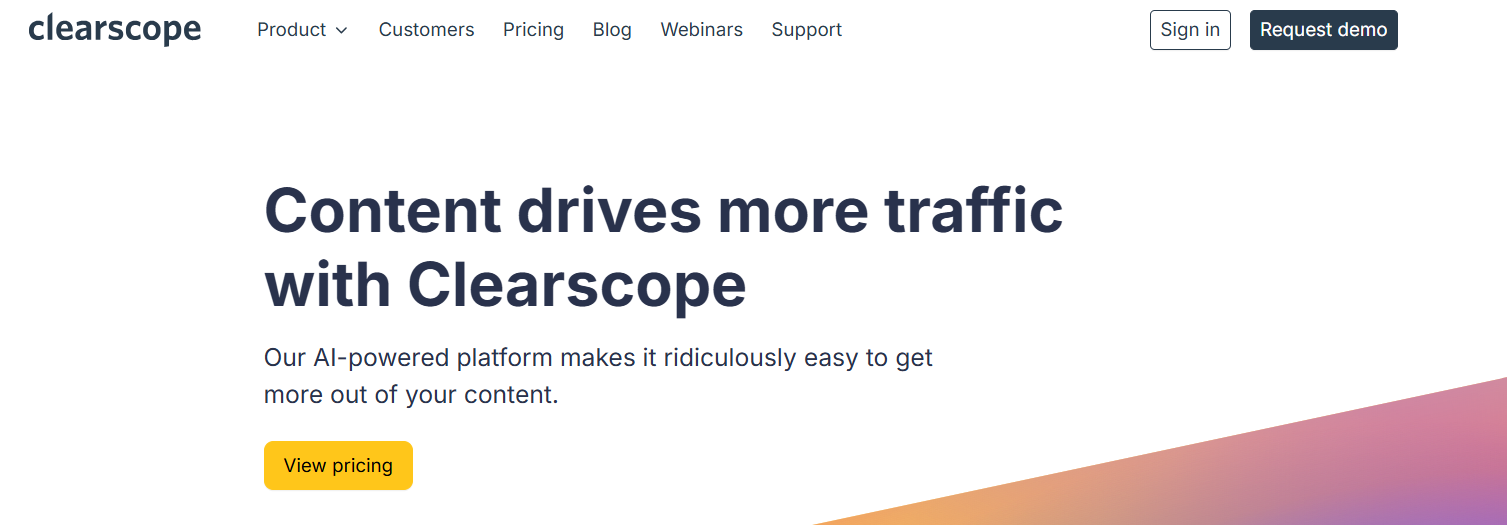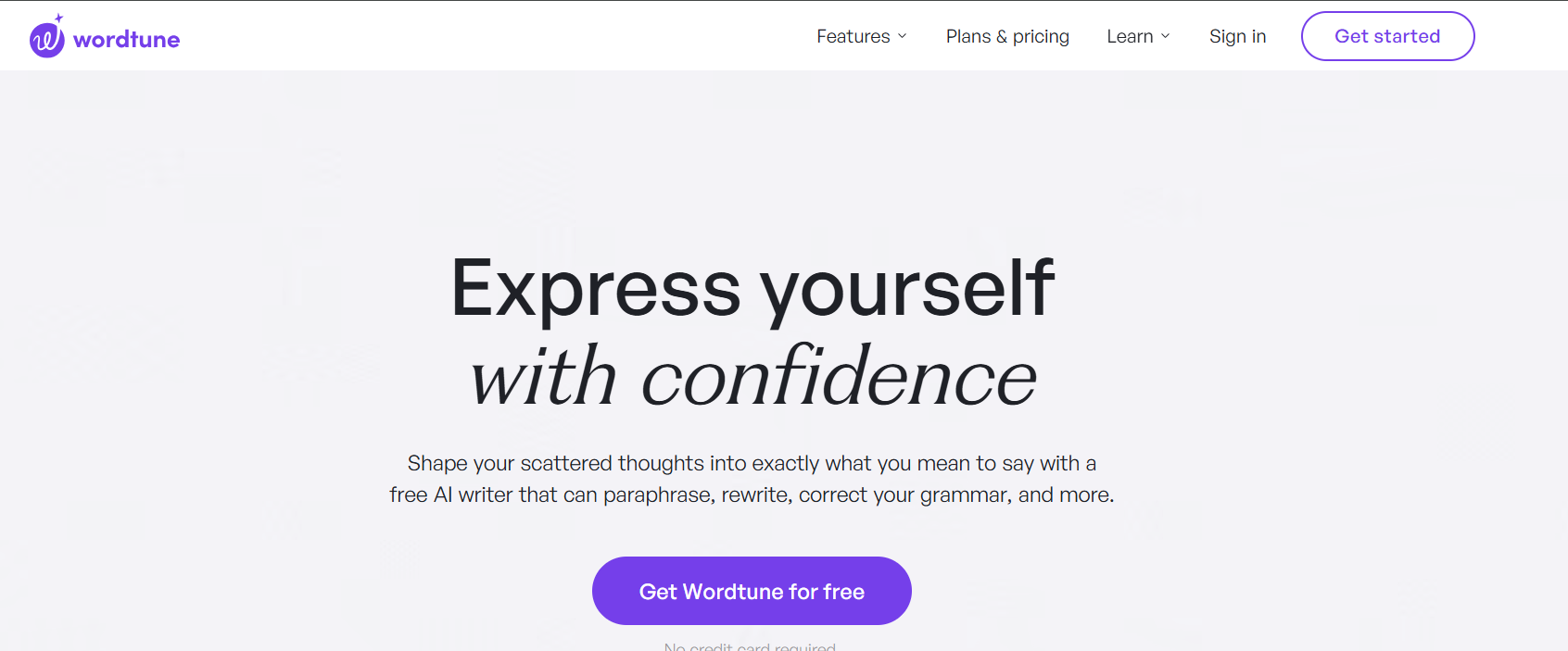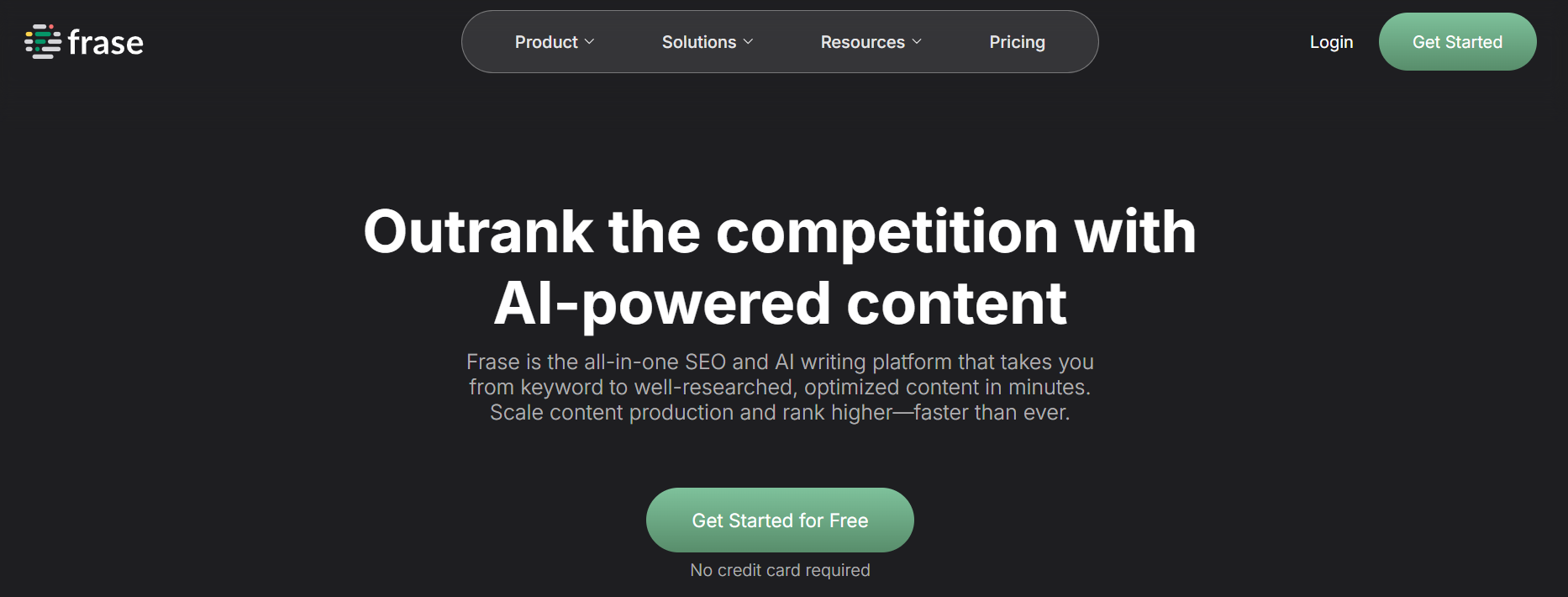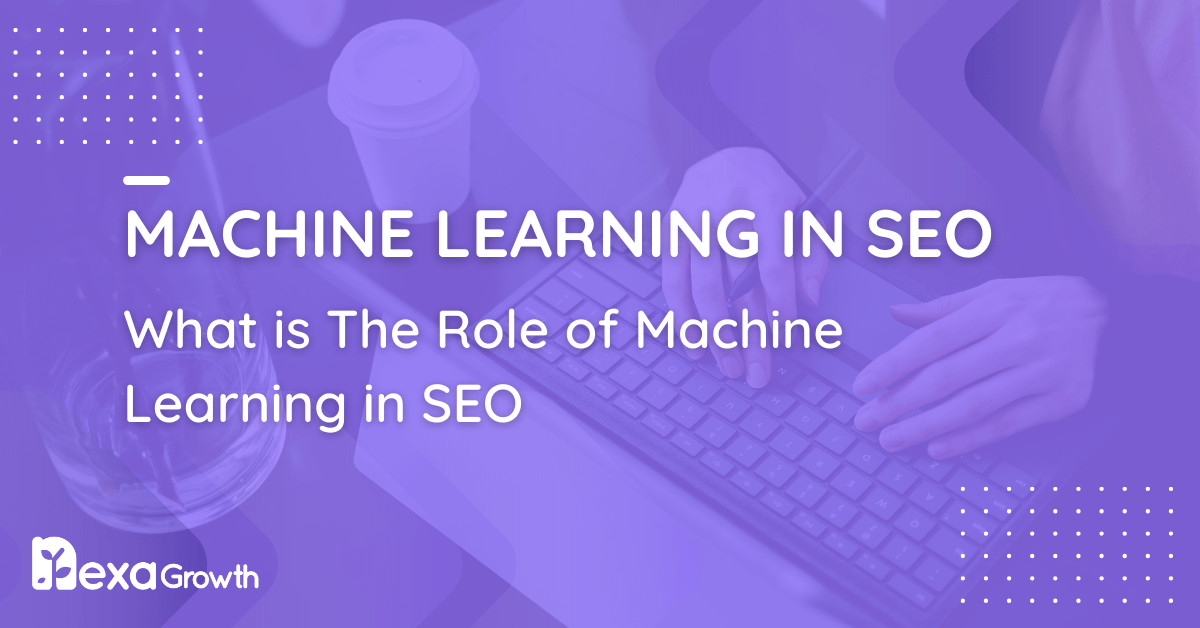- Machine learning powers modern SEO by helping search engines understand user intent and content relevance.
- It enhances keyword research, content optimization, and performance tracking through AI-driven tools.
- Platforms like Surfer SEO, Clearscope, and MarketMuse use ML to boost SEO efficiency and accuracy.
- SEO is evolving—not being replaced—by AI; human strategy combined with ML insights delivers the best results.
As search engines evolve, they increasingly rely on machine learning algorithms to understand user intent, rank content more effectively, and deliver highly relevant search results.
In fact, Google’s use of machine learning in its core algorithms like RankBrain and BERT has dramatically changed how SEO professionals approach keyword research, content creation, and optimization strategies.
According to a recent survey by BrightEdge, 60% of marketers believe that artificial intelligence and machine learning will have the biggest impact on SEO within the next five years.
This shift means that traditional SEO tactics alone are no longer enough to achieve and maintain high search rankings.
Instead, integrating machine learning techniques into SEO strategies is essential to stay competitive.
This guide will explore what machine learning is, how it is transforming SEO, and practical ways you can leverage it to improve your website’s performance.
Machine Learning Isn’t the Future—It’s the Standard
Nexa Growth taps into machine learning to optimize faster, deeper, and more effectively.
Contact UsWhat Is Machine Learning and Why It Matters for SEO
Machine learning is a branch of artificial intelligence that enables computers to learn from data and improve their performance without being explicitly programmed.
Instead of relying on fixed rules, machine learning algorithms analyze vast amounts of data to detect patterns, make predictions, and automate decision-making processes.
In the context of SEO, machine learning helps search engines better understand the intent behind user queries and the relevance of web content.
This means search engines can deliver more accurate and personalized results, improving the overall search experience.
The importance of machine learning in SEO cannot be overstated.
A study by Gartner predicts that by 2026, 75% of enterprises will shift from piloting to operationalizing AI, including machine learning, in their marketing strategies.
For SEO professionals, this means adopting machine learning techniques is no longer optional but necessary to keep pace with evolving search algorithms and user expectations.
Machine learning enhances many SEO functions, including keyword research, content optimization, ranking prediction, and user behavior analysis.
By leveraging these capabilities, marketers can make data-driven decisions that improve organic traffic and conversion rates.
Featured Article: What Are Backlinks in SEO? & Why They Matter in 2026
How Machine Learning Algorithms Power Modern Search Engines
Search engines like Google have integrated machine learning deeply into their core ranking algorithms to better understand and serve user queries.
Traditional SEO relied heavily on keyword matching and backlink counts, but today, machine learning models analyze far more complex signals to rank pages.
One of the earliest and most significant applications of machine learning in search was Google’s RankBrain, introduced in 2015.
RankBrain uses artificial intelligence to interpret ambiguous or unique queries by identifying patterns in large data sets, enabling Google to deliver relevant results even for searches it has never seen before.
Another major breakthrough is BERT (Bidirectional Encoder Representations from Transformers), which Google rolled out in 2019.
BERT uses natural language processing (NLP) to understand the context and nuance of words in a query, allowing the search engine to better grasp user intent, especially in longer or conversational searches.
Google’s use of neural networks and deep learning further enhances its ability to interpret search queries and evaluate content quality.
According to Google, BERT impacts about 10% of all search queries worldwide, highlighting how machine learning has become fundamental to delivering relevant search results.
Other search engines are also adopting machine learning.
For example, Bing uses machine learning to improve click-through rate predictions and personalize search results, while Baidu leverages deep learning to enhance voice search accuracy.
Overall, these machine learning algorithms enable search engines to continuously learn from user behavior and content performance, refining their ranking models in real time.
This shift underscores why SEO strategies must now align with machine learning-driven search engines to remain effective.
Outrank Smarter With Smarter SEO
We decode machine learning signals to build strategies that search engines reward.
Contact UsTop 7 Ways to Use Machine Learning in SEO
Machine learning is revolutionizing many aspects of SEO, enabling marketers to work smarter and more efficiently.
Here are the top seven ways you can leverage machine learning to improve your SEO strategy:
-
Smarter Keyword Research and Selection
Traditional keyword research often relies on manual processes and basic search volume data.
Machine learning tools analyze vast amounts of search data to identify trending keywords, semantic relationships, and long-tail opportunities that align better with user intent.
This approach helps uncover hidden keyword clusters and predict which terms are more likely to drive qualified traffic.
-
Advanced Content Optimization With Natural Language Processing (NLP)
Machine learning-powered NLP tools assess the relevance, readability, and comprehensiveness of content.
They help optimize articles by suggesting related topics, improving keyword usage, and ensuring content aligns with search intent. This leads to higher quality content that search engines favor.
-
Automating Content Creation and Topic Clustering
AI-driven platforms can generate content outlines or even draft articles based on keyword clusters and user intent signals.
Machine learning algorithms help group related topics into clusters, which improves site architecture and internal linking strategies, boosting topical authority and ranking potential.
-
Improving User Experience and Engagement Metrics
Machine learning analyzes user behavior data such as bounce rates, session duration, and click patterns to identify areas where your website’s UX can be enhanced.
By optimizing page speed, navigation, and layout based on these insights, you can improve engagement signals that search engines use as ranking factors.
-
Optimizing On-Page SEO Elements
Machine learning helps fine-tune titles, meta descriptions, headers, and other on-page elements by predicting which variations will perform better in search results.
This data-driven optimization increases click-through rates and relevance.
-
Enhancing Link Building and Off-Page SEO
ML algorithms evaluate backlink quality and identify high-value link opportunities by analyzing patterns from competitor profiles and industry trends.
This targeted approach maximizes the impact of your link-building campaigns.
-
Tracking SEO Performance With Machine Learning Analytics
Machine learning-powered analytics platforms monitor and predict SEO performance trends, helping you understand which strategies yield the best ROI.
They can detect anomalies, forecast traffic changes, and provide actionable recommendations to optimize ongoing campaigns.
SEO That Thinks One Step Ahead
Our ML-powered SEO strategies adjust dynamically—so you're always in sync with evolving algorithms.
Contact UsPractical Tools and Platforms Using Machine Learning for SEO
As machine learning becomes more integral to SEO, a variety of powerful tools have emerged to help marketers harness its capabilities effectively.
Here are some of the leading platforms leveraging machine learning to improve SEO outcomes:
- Surfer SEO
Surfer SEO uses machine learning to analyze top-ranking pages for any keyword and provides detailed content optimization suggestions. It evaluates over 500 on-page factors, helping users optimize keyword usage, content structure, and related topics to outperform competitors.
Surfer SEO Webpage - Clearscope
Clearscope employs natural language processing and machine learning to recommend relevant keywords and phrases that should be included in your content. Its content grading system helps ensure your articles meet the quality standards needed to rank well.
Clearoscope’s Webpage - MarketMuse
MarketMuse uses AI-driven topic modeling and content scoring to identify content gaps and opportunities. It automates content briefs and recommends improvements to boost topical authority and relevancy.
MarketMuse’s Webpage - Wordtune
Wordtune leverages machine learning to enhance content creation by suggesting improved wording, tone adjustments, and clarity improvements. It helps writers craft more engaging and SEO-friendly text quickly.
Wordtune’s Webpage - Frase
Frase combines machine learning with NLP to create content briefs, optimize existing content, and answer user questions effectively. It focuses on improving search intent matching and content relevance.

Frase’s Webpage
These tools not only save time but also provide data-driven insights that would be difficult to obtain manually.
By incorporating machine learning-powered platforms into your workflow, you can refine your SEO strategy with precision and scale your efforts more efficiently.
Featured Article: How to Fix Duplicate Content Issues: Canonical Tags and Strategies
Machine Learning and User Intent: How AI Understands Search Queries
One of the most significant ways machine learning has transformed SEO is through its ability to better understand user intent.
User intent refers to the underlying goal or purpose behind a search query, whether someone is looking to buy, learn, compare, or find a specific website.
Machine learning models analyze large datasets of search queries, user interactions, and content relevance to categorize queries based on intent.
For example, Google’s BERT algorithm uses natural language processing to grasp the context and subtleties of words in a search phrase, improving the match between the user’s intent and the search results.
Understanding user intent helps marketers create content that directly addresses the needs of their audience, leading to higher engagement, longer time on page, and better conversion rates.
Instead of simply targeting keywords, SEO strategies now focus on delivering comprehensive answers and solutions tailored to specific intents.
Studies show that about 70% of all Google queries are made up of long-tail keywords, which tend to be more intent-driven and conversational.
Machine learning excels at interpreting these complex queries, enabling websites that satisfy user intent to rank higher.
By aligning your content with machine learning-powered intent detection, you improve the chances that search engines will rank your pages for the right queries, driving qualified organic traffic that converts.
Featured Article: JavaScript SEO: How Google Crawls, Renders, and Indexes Your Site
The Future of SEO: Will AI and Machine Learning Replace Traditional SEO?
As machine learning and artificial intelligence technologies continue to advance, many wonder if traditional SEO practices will become obsolete.
While AI is transforming how search engines rank content and how marketers optimize websites, it is unlikely to completely replace SEO anytime soon.
Instead, SEO is evolving. Machine learning automates data analysis, content recommendations, and performance tracking, allowing SEO professionals to focus more on strategy, creativity, and user experience.
AI tools can handle repetitive and data-heavy tasks much faster and more accurately than humans, but understanding brand voice, audience needs, and market trends still requires human insight.
A survey by Search Engine Journal found that 82% of SEO experts believe AI will enhance rather than replace SEO roles.
The key to success is adapting to these new tools and integrating machine learning insights into your workflows.
Future SEO will be less about keyword stuffing and more about delivering genuinely valuable content, optimized for user intent and enhanced by AI-powered analytics.
SEO professionals who embrace machine learning will have a competitive edge in predicting trends, optimizing content at scale, and improving search visibility.
In summary, machine learning is reshaping SEO, but it does not eliminate the need for skilled marketers. Instead, it empowers them to work smarter, delivering better results in an increasingly complex search landscape.
Let AI Guide Your SEO Game
We use machine learning to uncover patterns, predict trends, and optimize before competitors catch up.
Contact UsConclusion: Leveraging Machine Learning to Stay Ahead in SEO
Machine learning is no longer a futuristic concept—it’s a core part of how search engines operate today.
From understanding user intent to optimizing content and improving user experience, machine learning enables smarter, more strategic SEO practices that align with modern search engine algorithms.
By integrating machine learning into your SEO efforts, you can uncover deeper insights, streamline content creation, and make data-driven decisions that drive sustainable growth.
Whether you’re using tools like Surfer SEO or leveraging NLP for content optimization, embracing these technologies gives you a competitive edge in an increasingly complex digital landscape.
The SEO professionals who succeed in the years ahead will be those who adapt quickly, learn continuously, and harness the full potential of machine learning to meet the evolving needs of both users and search engines.
Now is the time to rethink your SEO strategy—not just to keep up, but to lead.
Don’t Fight the Algorithm—Work With It
Nexa Growth uses machine learning to stay ahead of Google’s AI and deliver smarter rankings.
Contact Us
